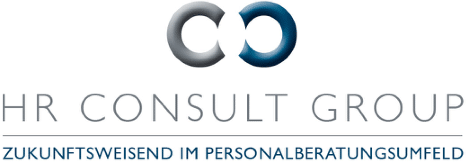Die Wahl des richtigen Headhunters ist eine entscheidende strategische Entscheidung für jedes Unternehmen. Headhunter sind spezialisiert darauf, Spitzenkräfte für Führungs- und Schlüsselpositionen zu finden, die nicht immer aktiv auf Jobsuche sind. Ein guter Headhunter kann den Unterschied zwischen einer erfolgreichen und einer gescheiterten Besetzung ausmachen. Im Folgenden werden die wichtigsten Kriterien und Fragen erläutert, die bei der Auswahl eines Headhunters berücksichtigt werden sollten.
Branchenexpertise und Spezialisierung
Ein wesentlicher Aspekt bei der Auswahl eines Headhunters ist seine Branchenexpertise. Ein Headhunter, der sich auf eine bestimmte Branche spezialisiert hat, kennt die spezifischen Anforderungen, Trends und Herausforderungen in diesem Bereich. Dies ermöglicht ihm, gezielt nach Kandidaten zu suchen, die genau den Anforderungen entsprechen.
Fragen, die Sie stellen sollten:
- In welchen Branchen sind Sie spezialisiert?
- Haben Sie Erfahrungen mit der Besetzung von Positionen wie der, die wir suchen?
- Können Sie Beispiele für erfolgreiche Platzierungen in unserer Branche nennen?
Erfolgsbilanz und Referenzen
Die Erfolgsbilanz eines Headhunters ist ein wichtiger Indikator für seine Kompetenz und Zuverlässigkeit. Es ist ratsam, nach Referenzen und Fallstudien zu fragen, um ein besseres Verständnis für die bisherigen Leistungen des Headhunters zu bekommen.
Fragen, die Sie stellen sollten:
- Können Sie Referenzen von früheren Kunden zur Verfügung stellen?
- Welche Erfolgsquote haben Sie bei der Besetzung von Positionen?
- Können Sie Beispiele für schwierige Besetzungen und deren Lösungen nennen?
Rekrutierungsprozess und Methodik
Ein klar definierter und strukturierter Rekrutierungsprozess ist ein Zeichen für Professionalität und Effizienz. Ein guter Headhunter sollte in der Lage sein, seinen Prozess von der Kandidatensuche bis zur Einstellung transparent darzustellen.
Fragen, die Sie stellen sollten:
- Wie sieht Ihr Rekrutierungsprozess aus?
- Welche Methoden und Tools verwenden Sie zur Kandidatensuche?
- Wie lange dauert es in der Regel, eine Position zu besetzen?
Netzwerk und Reichweite
Das Netzwerk eines Headhunters ist ein entscheidender Faktor für den Erfolg seiner Suche. Ein weitreichendes Netzwerk ermöglicht es, auch passive Kandidaten anzusprechen, die derzeit nicht aktiv auf Jobsuche sind, aber für eine neue Herausforderung offen sein könnten.
Fragen, die Sie stellen sollten:
- Wie groß ist Ihr Netzwerk in unserer Branche?
- Wie gehen Sie bei der Ansprache passiver Kandidaten vor?
- Welche Maßnahmen ergreifen Sie, um sicherzustellen, dass Sie die besten Talente erreichen?
Transparenz und Kommunikation
Eine offene und transparente Kommunikation ist unerlässlich für eine erfolgreiche Zusammenarbeit. Ein guter Headhunter sollte regelmäßig über den Fortschritt der Suche informieren und bei Fragen und Anliegen stets ansprechbar sein.
Fragen, die Sie stellen sollten:
- Wie oft und in welcher Form kommunizieren Sie während des Rekrutierungsprozesses?
- Wer wird unser Hauptansprechpartner sein?
- Wie gehen Sie mit Feedback und Änderungen im Anforderungsprofil um?
Kosten und Gebührenstruktur
Die Kostenstruktur eines Headhunters kann variieren. Es ist wichtig, die Gebühren und die damit verbundenen Leistungen im Voraus zu klären, um Missverständnisse und unerwartete Kosten zu vermeiden.
Fragen, die Sie stellen sollten:
- Wie ist Ihre Gebührenstruktur aufgebaut?
- Gibt es zusätzliche Kosten, die wir berücksichtigen müssen?
- Welche Leistungen sind in den Gebühren enthalten?
Kulturelle Passung und Werte
Die kulturelle Passung zwischen dem Headhunter und Ihrem Unternehmen ist ebenfalls ein wichtiger Faktor. Ein Headhunter, der die Werte und die Kultur Ihres Unternehmens versteht, kann besser geeignete Kandidaten finden, die nicht nur fachlich, sondern auch kulturell passen.
Fragen, die Sie stellen sollten:
- Wie stellen Sie sicher, dass Kandidaten zur Unternehmenskultur passen?
- Können Sie Beispiele für Ihre Arbeit mit Unternehmen nennen, die ähnliche Werte wie wir haben?
- Wie berücksichtigen Sie kulturelle Aspekte im Rekrutierungsprozess?
Garantie und Nachbetreuung
Ein weiterer wichtiger Aspekt ist die Garantie, die der Headhunter bietet, sowie die Nachbetreuung nach der Einstellung. Eine Garantie bietet eine gewisse Sicherheit für den Fall, dass der eingestellte Kandidat die Erwartungen nicht erfüllt.
Fragen, die Sie stellen sollten:
- Bieten Sie eine Garantie für Ihre Dienstleistungen an? Wenn ja, wie lange?
- Welche Maßnahmen ergreifen Sie, wenn der eingestellte Kandidat nicht passt?
- Bieten Sie Nachbetreuung oder Onboarding-Unterstützung an?
Fazit
Die Auswahl des richtigen Headhunters erfordert eine sorgfältige Bewertung mehrerer Faktoren. Branchenexpertise, Erfolgsbilanz, Netzwerk, Kommunikationsfähigkeit und kulturelle Passung sind nur einige der entscheidenden Kriterien. Durch gezielte Fragen und eine gründliche Prüfung können Unternehmen sicherstellen, dass sie den besten Partner für ihre Rekrutierungsbedürfnisse finden. Ein guter Headhunter kann nicht nur den Rekrutierungsprozess optimieren, sondern auch dazu beitragen, dass das Unternehmen langfristig erfolgreich ist, indem er die besten Talente an Bord holt.



